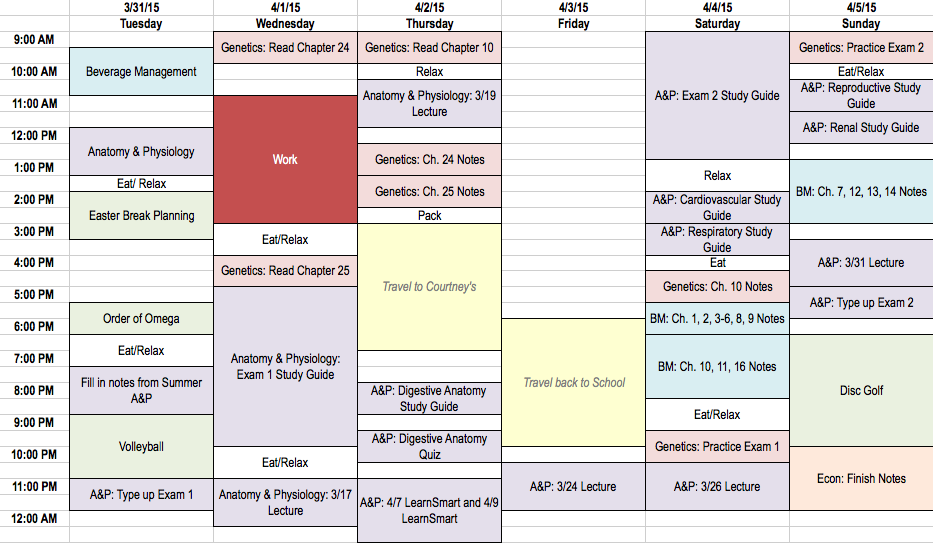Improve focus by creating a quiet study space. Break study time into shorter sessions with breaks. Try the Pomodoro method. Stay hydrated for better concentration. Practice mindfulness before starting. Setting specific goals and using rewards can help. If you want to explore more ways for “how to concentrate more while studying”, there are expert strategies waiting for you.
What is Essential for Exams?
To do well in exams, concentrate on learning important ideas and practicing regularly. Understanding the basic principles of each subject is vital for success. When you grasp the main concepts, it becomes simpler to handle tough problems and questions that may come up in exams. Regular practice strengthens your understanding and helps you remember information better. Create a study plan that lets you go over material regularly instead of studying all at once before the exam.
Additionally, seeking clarification on topics you find challenging is essential. Don’t hesitate to ask your teachers or classmates for help when needed. Remember, exams aren’t just about memorizing information but also about applying it effectively. Engage in active learning methods such as solving problems, participating in discussions, and teaching concepts to others. These techniques enhance your understanding and retention of the material.
Moreover, staying organized and managing your time wisely are key factors in exam preparation. Prioritize your study sessions based on the difficulty of the subjects and allocate sufficient time for each. Avoid distractions and create a conducive study environment to maximize your focus and productivity. By incorporating these strategies, you can better prepare yourself for exams and improve your overall academic performance.
Power of Concentration
Concentration is a vital skill that can significantly enhance your studying effectiveness and overall academic performance. When you’re able to focus your mind on the task at hand without distractions, you can absorb information more efficiently and retain it better. The power of concentration lies in its ability to help you delve deep into complex topics, understand intricate concepts, and solve problems with clarity. By sharpening your concentration skills, you can make the most of your study sessions and maximize your learning potential.
Moreover, strong concentration enables you to maintain a consistent level of engagement throughout your study sessions, allowing you to cover more material in less time. When you’re fully immersed in your studies, you’re more likely to grasp difficult subjects and connect ideas effectively. Concentration is like a muscle that grows stronger with practice, so the more you train your mind to focus, the better you’ll become at absorbing information and performing well academically.
How to Increase Concentration While Studying
To boost your concentration while studying, try implementing specific steps that can make a significant difference.

These steps may involve creating a conducive study environment, using techniques like the Pomodoro method, and taking short breaks to refresh your mind.
-
Steps for “How To Concentrate More While Studying”
Implementing simple strategies can significantly enhance your focus and productivity while studying. One effective method is to create a designated study space free from distractions. Additionally, breaking your study sessions into manageable chunks with short breaks in between can help maintain your concentration levels. Using techniques like the Pomodoro method, where you work for 25 minutes then take a 5-minute break, can be beneficial. Ensuring you are well-rested and hydrated is also crucial for optimal focus. Lastly, practicing mindfulness or meditation before studying can clear your mind and improve your ability to concentrate.
| Study Strategy | Description |
| Designated Study Space | Choose a quiet area with minimal distractions |
| Pomodoro Technique | Work for 25 minutes, then take a 5-minute break |
| Break Study Sessions | Divide study time into smaller intervals with breaks |
| Stay Hydrated | Drink water to maintain focus |
| Mindfulness Practice | Clear your mind before studying for better concentration |
Preparing to Concentrate While Studying
When getting ready to focus on your studies, establishing a conducive environment can greatly enhance your ability to concentrate effectively. Start by finding a quiet and well-lit space where you can study without distractions. Ensure that your study area is organized and clutter-free, as a tidy workspace can help clear your mind and improve focus. Gather all the necessary study materials before you begin to avoid interruptions.
Another important aspect of preparing to concentrate while studying is to set specific goals for your study session. Having a clear objective in mind can help you stay on track and make your study time more productive. Break down your study material into manageable chunks and create a study schedule to allocate time for each task.
Lastly, remember to take care of your physical well-being before studying. Stay hydrated, have a light snack if needed, and ensure you’re seated comfortably. By creating an optimal study environment and setting clear goals, you can better prepare yourself to concentrate effectively while studying.
Maintaining Concentration While Studying
Focus on eliminating distractions around you as you delve into your study session. Find a quiet place to study, away from noisy environments and interruptions. Turn off notifications on your phone and computer to avoid being tempted to check them frequently. Additionally, let your family or roommates know that you need uninterrupted study time.
Create a study schedule to help you stay on track and maintain focus. Break down your study sessions into manageable chunks with short breaks in between. This technique can prevent burnout and improve your overall concentration. Prioritize difficult tasks during your peak concentration hours to make the most of your study time.
Engage actively with the material you’re studying. Take notes, ask questions, and summarize key points to enhance your understanding and retention. Consider using mnemonic devices or visualization techniques to make the information more memorable. By actively participating in the learning process, you can maintain your concentration and improve your study outcomes.
Supercharge Your Studying with this Expert Series
Get ready to supercharge your studying with this expert series!
Discover nine powerful tips to help you concentrate for long hours during exams.
These strategies will optimize your study sessions and boost your productivity like never before.
-
9 Tips to Concentrate on Studies for Long Hours During Exam
Ready to supercharge your studying for those long exam hours?
Make a plan and to-do list, schedule your study time wisely, and set up a calm study space.
Remember to take regular breaks and fuel your brain with healthy snacks to keep your focus sharp.
-
Make a plan & to-do list
Crafting a detailed plan and to-do list is crucial for enhancing your ability to concentrate while studying for long hours, especially during the exam period.
– Prioritize tasks based on importance
– Break down study sessions into manageable chunks
– Set specific goals for each study session
-
Schedule your time for study
To optimize your study sessions and supercharge your ability to concentrate for long hours during exams, it’s essential to carefully schedule your time for study. Set specific study blocks in your daily routine, considering peak focus times.

Prioritize challenging subjects when your mind is most alert. Break down study sessions into manageable chunks with short breaks to maintain productivity.
Stick to your schedule to build a consistent study habit.
-
Create a relaxed study environment
Creating a relaxed study environment is key to optimizing your focus and concentration during long study sessions, especially when preparing for exams.

– Eliminate Distractions: Find a quiet space.
– Comfort is Key: Ensure a comfortable chair and good lighting.
– Organize Your Space: Keep study materials neat and easily accessible.
-
Take regular breaks
For enhanced focus and productivity during long study sessions, incorporating regular breaks is essential for maintaining optimal concentration levels. Remember to take short breaks every 25-30 minutes to recharge your mind. Use this time to stretch, hydrate, or take a brief walk. These breaks can help prevent burnout and improve overall cognitive performance. Here’s a table to illustrate the benefits of regular breaks:
Benefits of Regular Breaks
- Helps prevent burnout
- Improves concentration
- Boosts cognitive performance
- Enhances productivity
- Allows for mental recharge
-
Make healthy eating choices
Making healthy eating choices is crucial for sustaining long hours of focused studying during exams. To keep your mind sharp and energy levels high, consider the following:

– Opt for brain-boosting snacks like nuts and fruits.
– Stay hydrated by drinking plenty of water throughout the day.
– Avoid sugary or heavy meals that can lead to energy crashes.
-
Don’t get distracted by social media
To maintain focus and maximize your study time during exams, it is essential to minimize distractions from social media. Constant notifications and scrolling can break your concentration. Consider using apps to block social media during study sessions.

-
Drink plenty of water and eat well
Minimizing distractions like social media can enhance your focus while studying. Another crucial element to supercharge your studying is ensuring you drink plenty of water and eat well.

– Hydration is key; drink water regularly.
– Opt for brain-boosting foods like nuts and fruits.
– Avoid heavy meals that may lead to sluggishness.
-
Set goals & reward yourself
Setting clear goals and rewarding yourself can significantly boost your ability to concentrate on studying for long hours during exams.

Break down your study material into manageable tasks and set specific goals for each session. Once you achieve these targets, reward yourself with a short break, a snack, or a quick walk.
These incentives can keep you motivated and focused throughout your study sessions.
-
Don’t do all-nighters, you will regret it!
Avoiding all-nighters while studying is crucial to ensure optimal performance and well-being during exams. Pulling all-nighters can have detrimental effects on your focus, memory retention, and overall health. Instead, prioritize quality sleep to enhance learning and cognitive functions. Remember, a well-rested mind is more productive than a sleep-deprived one.
– Focus on quality sleep
– Enhance memory retention
– Improve overall health
Conclusion
So, remember to eliminate distractions, set specific study goals, take breaks, and stay organized to boost your concentration while studying.
With these tips, you can improve your focus and retain information more effectively.
Don’t forget to stay motivated and keep practicing these strategies to see better results in your exams.
Happy studying!
For a nurturing and structured learning environment that enhances your study habits, consider joining Heritage Girls School. Explore how we can help you achieve academic excellence and reach your full potential.
Frequently Asked Questions
1. How can I focus 100% on studying?
Answer: Eliminate distractions by finding a quiet study space, turning off notifications, and setting specific study goals. Break your study sessions into manageable chunks with short breaks to maintain focus and productivity.
2. How to focus on study for long hours?
Answer: Use the Pomodoro technique: study for 25 minutes, then take a 5-minute break. After four sessions, take a longer break. Stay hydrated, eat healthy snacks, and switch subjects to keep your mind engaged.
3. How do I study 15 hours a day?
Answer: Plan a detailed schedule with short, regular breaks to avoid burnout. Prioritize tasks, stay disciplined, and ensure adequate sleep and nutrition. Break down study time into focused, manageable sessions to maintain energy levels.
4. How to study for 4 hours straight?
Answer: Divide your study time into segments, such as 50 minutes of work followed by a 10-minute break. Stay hydrated, keep snacks nearby, and switch tasks periodically to maintain concentration and avoid fatigue.
5. How to concentrate more while studying at home
Answer: Create a dedicated study area free from distractions. Set clear goals, use a timer to track study sessions, and communicate your study times to family members. Take regular breaks and stay organized to maintain focus.
6. How to concentrate better in my studies
Answer: Develop a consistent study routine and eliminate distractions. Use active learning techniques such as summarizing information, teaching others, and using visual aids. Ensure a healthy lifestyle with proper sleep, nutrition, and exercise.
7. How long can you concentrate while studying?
Answer: Most people can concentrate effectively for 20-30 minutes at a time. Using techniques like the Pomodoro Technique, you can gradually increase your study periods with regular breaks to maintain focus and avoid burnout.
8. How to improve concentration and memory while studying?
Answer: Maintain a healthy lifestyle with proper diet, exercise, and sleep. Use active learning methods like teaching others, creating mind maps, and practicing spaced repetition. Minimize distractions, set clear goals, and take regular breaks.
9. How can I concentrate more on my studies?
Answer: Create a quiet, organized study environment. Set a consistent study schedule, use active learning techniques like note-taking, and minimize distractions by turning off notifications. Take regular breaks to maintain focus.


